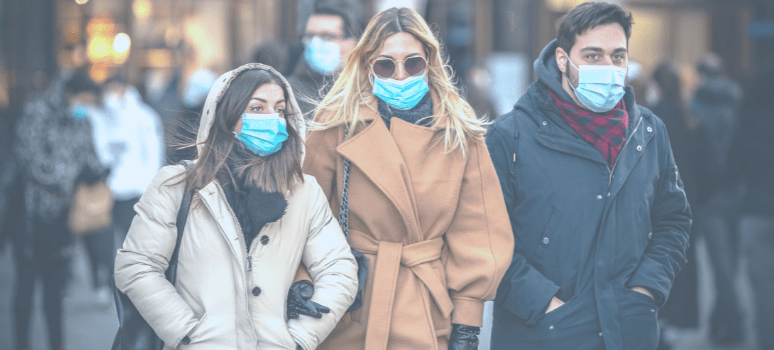The management of the Covid-19 pandemic has evolved as we have learned about the effects of the disease, its behaviour and incidence. The measures taken at the individual and local level have been effective and we are back to normal, but there are still guidelines in place.
The first case of covid-19 in Spain was confirmed in La Gomera on 31 January 2020. The patient was a German tourist who had been admitted to the island with symptoms and tested positive for coronavirus. This person had been infected in Germany, through a person infected with the virus. It was on 24 February that the virus made the leap to the peninsula, the first cases being detected in Catalonia, the Community of Valencia and the Community of Madrid. From that moment on, the cases in Spain evolved and a period of change began that would lead to the so-called "new normal".
On 14 March 2020, a State of Alarm was decreed, a situation that was extended six times, until 21 June. This exceptional situation, which was repeated again at the end of 2020, had two objectives: to prevent the spread of the virus and to mobilise all necessary resources to combat covid-19, especially health resources.
At the time, little was known about a virus that has spread throughout the world, affecting more than 200 million people and causing 4.5 million deaths. The United States, India, Brazil and the United Kingdom lead the dramatic figures, in Spain, have also hit: almost five million people infected and more than 85,000 people dead.
Developments in the detection of Covid-19
The The health and pharmaceutical sectors have been working intensively on the in recent months: the first, to attend to the day-to-day needs of patients, and the second, to find a mass method of prevention, a vaccine. In both cases it has been successful, to which must be added the progress in models for detecting the virus.
Symptomatology has been one of the most agile and effective forms of prevention: at the first manifestation of symptoms compatible with covid In some cases, the measure of confinement was imposed automatically, even without waiting for the results of the covid tests. This, which may have seemed overzealous to many people, has also prevented contagion and served to alleviate the burden on the health system, which has been overwhelmed by the pandemic.
The progress of the biomedical science focused on research in several lines of action with investments of millions of euros. In vaccine research and development, the investment is estimated to have been 5 billion euros. Once it is known that vaccines are not 100% effective and that the inflammatory response at the pulmonary level can be lethal in this case, research is underway on a combination of drugs to block this acute inflammation. (and its effects, such as the so-called cytokine storm that causes this lung distress).
And even with all these measures, the first people appeared with covid persistenti.e., people who have continued to express symptoms of covid much later than average.
What are the care guidelines against Covid-19 that we have followed?
Prevention against Covid-19 has led to a accelerated course on infection prevention guidelines. All health authorities, from the World Health Organisation to local health officials, have insisted on these 8 guidelines:
- Frequent hand washing and use of hydrogel.
- Mandatory use of face mask.
- Sneezing or coughing into the forearm.
- Avoid touching your face.
- Regular cleaning of surfaces.
- Maintain a safety distance of 1.5 metres between persons.
- Ventilate enclosed spaces
In the beginning, we also wore gloves, washed our clothes or disinfected our shopping when we got home. The use of masks and social distance have been, and continue to be, the most effective measures to combat the disease.
On the other hand, there has been much talk about the need to maintaining a strong immune system. Although it is true that the greater predisposition to contagion depends on different factors of the health of each person, as well as the danger of the virus and other external factorsThe better or worse prepared our bodies are, the more likely we are to have this and other diseases.
Under normal conditions, the immune system defends us effectively. Otherwise, most of the population would be sick all the time. What is true is that health and immune system care are key issues for those who are more prone to disease.
Assessing the health status of the immune system can be done through different tests that analyse our intestinal system, where part of the immune system resides, and the immune system's own tests for covid-19.
For the care of the immune system we can count on specific treatment or adopt guidelines in our daily lives that help us.
What about covid-19 now?
Spain is currently in a low-risk situation. However, therotective measures have not been fully lifted and it will take time to remove the mask. in enclosed spaces. In fact, many people will feel safer if they wear it. What we have done is to become aware of preventive care and the need to prepare our body to defend itself effectively against disease.
From Biosalud we currently see different trends in behaviour towards covid-19:
- That of people who are aware of prevention and health care and who integrate anti-covid guidelines into their lives - let us not forget that the virus, not only has not disappeared, but continues to evolve with different strains.
- That of those who want to go back to square one and relate to each other without any kind of prevention.
- That of people who have not yet recovered their health and who may show symptoms of postcovid syndrome. In this respect, there is still much to be studied as the reference time period has not been long enough to know the full consequences of this pandemic.


